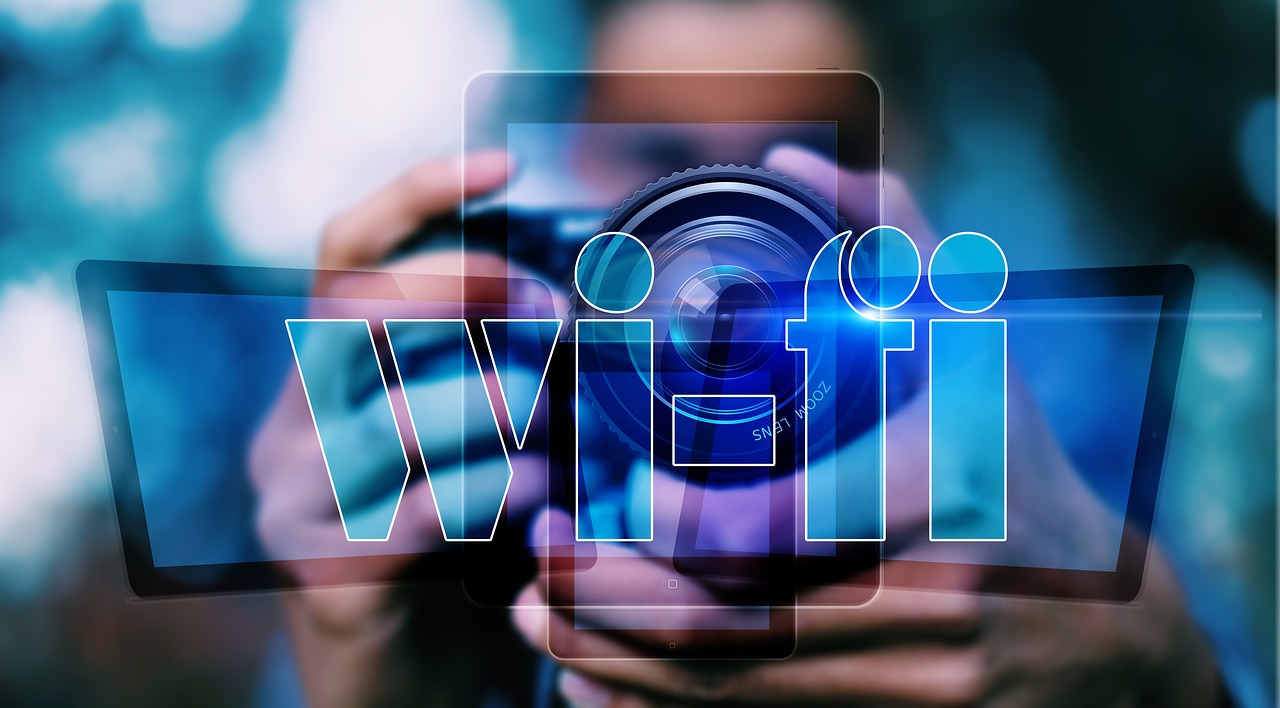Today, there are public Wi-Fi networks almost everywhere, from hotels and cafes to supermarkets. While this is certainly convenient, to use public Wi-Fi when sitting in a cafe or being in the market, the dangers associated with using a public Wi-Fi network should not be underestimated.
This allows hackers to easily gain access to unprotected devices on the network. In the following, let’s learn about some of the security risks we pose when connecting to public Wi-Fi networks and explain each of these dangers.
What are the risks of using public wi-fi networks?
The main danger associated with using a public Wi-Fi hotspot is that when using a public network your traffic is not protected, therefore it can easily be traced by an intruder connecting to the same hotspot and using special software that allows it.
Free Wi-Fi access points are actively used by cybercriminals. As mentioned above, with the help of special applications (software network scanners) installed on a smartphone, tablet or laptop, attackers can effortlessly collect a variety of information about active access points, their names, the base stations used, the type of encryption, connected devices and the sites viewed on them, to determine whether devices share files or not. Learn more about how to avoid security risks on public Wi-Fi networks.
How to protect yourself when using a public network?
Public Wi-Fi networks mean not only access to the Internet but also a million chance of leaking your passwords to cybercriminals. What can you do to protect yourself? As a rule, if you frequently use public Wi-Fi networks without precautions and don’t care about the authenticity of the access point you’re using, you’re certainly at considerable risk.
Fortunately, the precautions required to ensure the full security of a public Wi-Fi network are simple and will give you peace of mind when connecting to any public network. Choose the best free VPN to protect your data.
A VPN is one of the safest and most secure methods you can use to protect your devices. When you choose a VPN, be sure to consider the following:
- No logging policy
- Large network of servers
- Easy-to-use applications
Having an internet connection has become a necessity these days. That being said, it can be a problem if you’re only stuck on a public Wi-Fi network. However, this is where hotspot apps come in handy. Keep in mind that the best access point applications usually come with a VPN connection.
Reasons to use a VPN
A VPN (Virtual Private Network) provides remote secure access to the Internet by using tunnels. A VPN encrypts personal data and hides your IP address from the outside world when you use the Internet so that no one knows what sites you visit or what you do on them.
Using VPN technology is necessary for every user, and here’s why:
- Data protection. It’s especially suitable for those users who like to connect to their neighbour’s “free” Wi-Fi connection and then discover that their card data has been stolen. Such situations include sitting in cafes and, in general, in any place with free Wi-Fi.
- Total anonymity. When you open a new tab with a website – this action will be displayed on the provider’s server, so that your journey through the Internet can be tracked by any employee of the company. By turning on a VPN, you will hide your browsing or visiting history because you are using a different IP address.
- The ability to surf the Internet without obstacles. Bookmakers, online casinos, torrents, forums, adult websites – all the “underground” of the Internet is available to you again, just like in the old days.
- Using foreign resources. It is likely, of course, that you will use English-language services but all the same – full access to all popular sites around the world is provided to you.
Use VPNs for your ideal data protection
Browsing through hundreds of unknown apps in search of a quality product can take a long time if you are looking for the best free VPN. Also, once you find what you’re looking for, you’ll need to understand the limitations of a free VPN compared to paid services.
Before you entrust your online activity to a provider, it is important to understand how they can provide free services. VPNs protect your online privacy by preventing attacks or discrimination based on your location. It also protects user privacy and aims to protect user data. Surprisingly, it allows users to remain completely anonymous because all traffic is encrypted while the VPN is active. Learn more details about public Wi-Fi usage to pay attention.
The Virtual Private Network offers an extra layer of encryption for Internet communication. Because the VPN encrypts all data transmitted, hackers cannot reach your data without the decryption key.
Conclusion
Using public Wi-Fi may not be as safe as you think. When you use an unencrypted public Wi-Fi network, hackers, government agencies and other intruders can watch everything you do online. That means they can access your daily messages, emails and bank details to name a few important services.
The key is to keep you safe. Fortunately, there are many ways to protect your devices and the information on them from the dangers of public Wi-Fi networks. One of them is having a good VPN. With the help of a VPN, you can connect to a public hotspot on your device to read the latest news, check social media, or even check your bank balance.






Click here to change your cookie preferences